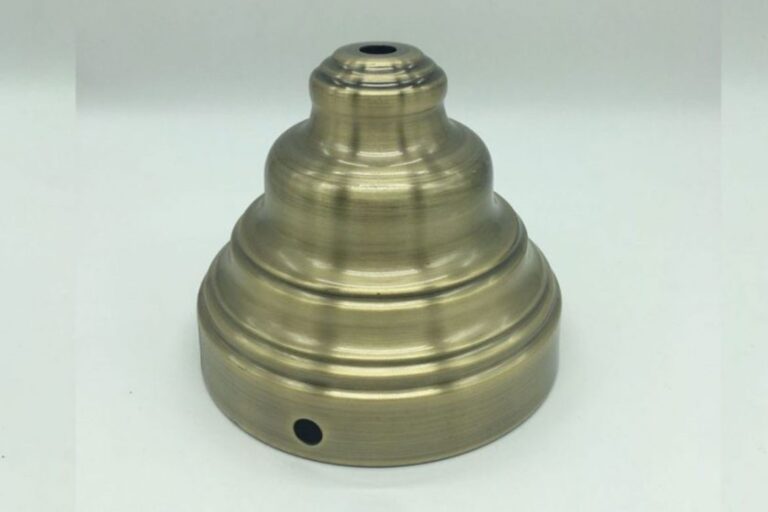The Importance of CNC Machining in Aerospace Manufacturing
In terms of technological advancement and precision engineering, the aerospace industry leads the way. A key component of its success is its use of CNC (Computer Numerical Control) machining. In aerospace manufacturing, CNC machining offers unmatched precision, flexibility, and efficiency, allowing complex components to meet aerospace’s high safety and performance standards.
From the manufacture of critical engine parts to the intricate geometries of airframe structures, CNC technology allows the aerospace industry to innovate and excel. Besides ensuring the reliability and durability of aerospace components, this advanced manufacturing technique also increases the speed and adaptability of production processes. With aerospace engineering pushing the limits of what is possible, CNC machining becomes vital, advancing innovation and achievement.
CNC Machining in Aerospace Manufacturing
As a vital component of aerospace manufacturing, CNC machining offers exceptional precision and versatility. Aerospace parts require complex designs and tight tolerances, leading to a heavy reliance on CNC technology. A few examples of aerospace parts produced using CNC machines include engine components, landing gear assemblies, and airframe structures.
The technology allows the processing of many types of materials, such as lightweight aluminum alloys, titanium, and advanced composites, which are critical for achieving the desired performance characteristics of aerospace vehicles.
The ability of CNC machines to operate with minimal human intervention while maintaining high levels of precision greatly reduces the potential for error. Additionally, CNC manufacturing facilitates the production of custom and low-volume parts, a common requirement in the aerospace industry, where unique engineering challenges often require tailored solutions and rapid prototyping.
Additionally, CNC-based processes integrate with CAD (Computer-Aided Design) and CAM (Computer-Aided Manufacturing) software to simplify the transition from design to production. By directly translating complex designs into precise machining instructions, engineers can accelerate development cycles and promote innovation.
The role of CNC machining in shaping the future of air and space travel is crucial, underpinning the sector’s commitment to advancing safety, performance, and technology.
Tensile Testing Specimen Preparation for the Aerospace Industry
CNC machines are essential in the preparation of tensile testing specimens, guaranteeing that each sample precisely meets the required standards for material testing. This meticulous preparation is necessary for determining the tensile strength, ductility, and other vital mechanical properties of aerospace materials. Standards such as ASTM E8 for metals dictate the dimensions and shape of specimens, providing consistency and reliability in testing outcomes.
CNC machining produces these specimens with remarkable accuracy and consistency. By automating cutting and shaping processes, CNC machines eliminate human error and variability, producing specimens that exactly match testing standards.
The ability to work with a broad range of materials – from aluminum alloys to titanium and composites – further illustrates CNC’s flexibility.
Furthermore, CNC machining streamlines the workflow from material selection to testing, enabling faster iterations and optimization of aerospace components. Fast turnaround times are essential for meeting the rigorous testing schedules of aerospace projects and facilitating the development of new materials and technologies.
Aerospace engineering continues to push the boundaries, and CNC machines play an increasingly important role in improving the accuracy of material testing through precise specimen preparation.
The integration of advanced CNC machines in the preparation of tensile testing specimens underscores the indispensable link between cutting-edge manufacturing technology and aerospace material testing demands. Selecting CNC equipment from reputable, reliable manufacturers becomes a necessity, as the quality, precision, and reliability of testing specimens directly impact aerospace components’ integrity and safety. Trusted manufacturers not only provide machines capable of adhering to specimen preparation standards but also offer ongoing support, making sure that the equipment remains accurate and efficient.
Challenges and Innovations in CNC Aerospace Machining
CNC machining in aerospace manufacturing does not come without its challenges, despite its clear advantages. With aerospace components’ complexity and absolute precision requirements, CNC technology faces immense challenges. Materials such as titanium alloys and high-temperature superalloys require specialized tooling and machining strategies to avoid tool wear and ensure quality.
In response to these challenges, computer numerical control machine tooling has undergone significant innovations to enhance its capabilities. With advanced CNC machines, cutting conditions can be adjusted in real-time to optimize tool life and part quality. By integrating artificial intelligence and machine learning algorithms, predictive maintenance is possible, reducing downtime and increasing efficiency.
The advent of 5-axis CNC machining allows the machining of complex parts from virtually any angle in one setup, which is one of the most exciting developments.
It is particularly beneficial for aerospace components with intricate geometries, reducing the need for multiple setups and ensuring tighter tolerances. High-speed machining techniques have also dramatically reduced production times, allowing aerospace manufacturers to increase throughput without sacrificing precision.
Elevating Aerospace Manufacturing Through CNC Machining
CNC machining has a transformative impact on aerospace manufacturing. With its unmatched precision, flexibility, and efficiency, CNC technology has become indispensable in producing the complex and high-quality components required by the aerospace industry. Aerospace engineering continues to explore new horizons and advance technology, and CNC machine tooling plays an increasingly important role in enabling these advancements. As well as guaranteeing that components meet the industry’s safety and performance requirements, it accelerates innovation and development.
CNC machining can, however, only be realized to its full potential with reliable tools and partnerships with reputable companies. In addition to providing the advanced machinery required by the aerospace industry, these companies also provide essential services and maintenance support. Aerospace components’ quality, integrity, and safety are directly affected by the selection of equipment from trusted manufacturers


